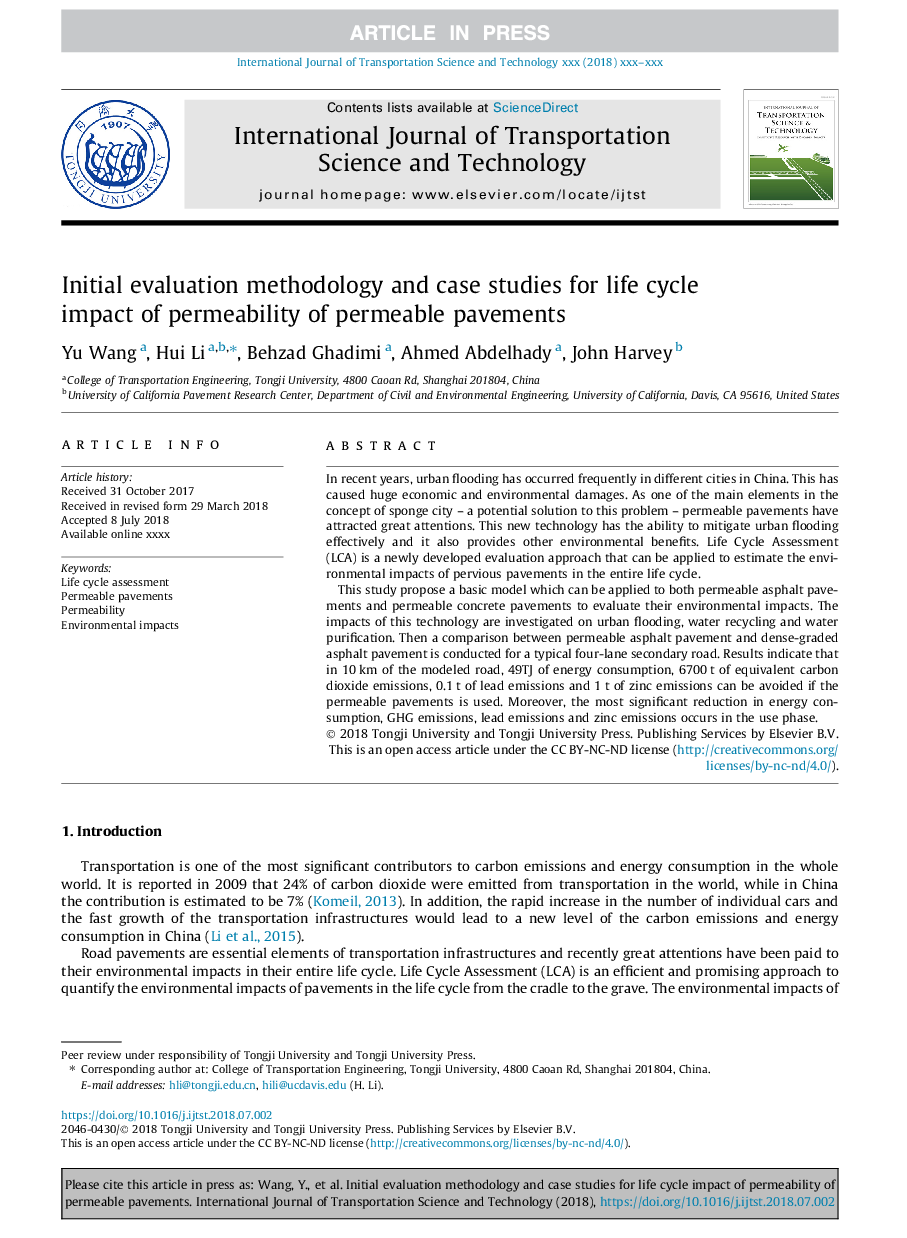| Article ID | Journal | Published Year | Pages | File Type |
|---|---|---|---|---|
| 10150721 | International Journal of Transportation Science and Technology | 2018 | 10 Pages |
Abstract
This study propose a basic model which can be applied to both permeable asphalt pavements and permeable concrete pavements to evaluate their environmental impacts. The impacts of this technology are investigated on urban flooding, water recycling and water purification. Then a comparison between permeable asphalt pavement and dense-graded asphalt pavement is conducted for a typical four-lane secondary road. Results indicate that in 10â¯km of the modeled road, 49TJ of energy consumption, 6700â¯t of equivalent carbon dioxide emissions, 0.1â¯t of lead emissions and 1â¯t of zinc emissions can be avoided if the permeable pavements is used. Moreover, the most significant reduction in energy consumption, GHG emissions, lead emissions and zinc emissions occurs in the use phase.
Related Topics
Physical Sciences and Engineering
Engineering
Civil and Structural Engineering
Authors
Yu Wang, Hui Li, Ahmed Abdelhady, John Harvey,
